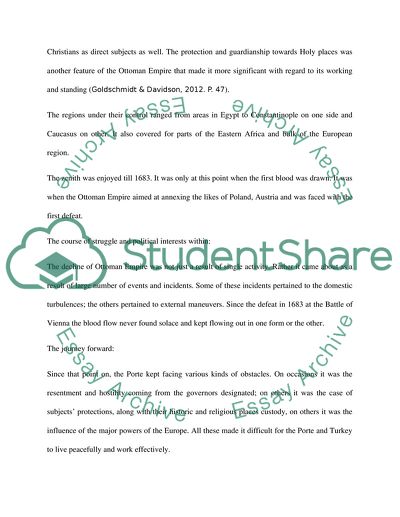Cite this document
(“Explain the origins, Rise and Decline of the Ottoman-Turkish Empire ( Research Paper”, n.d.)
Retrieved from https://studentshare.org/history/1634356-explain-the-origins-rise-and-decline-of-the-ottoman-turkish-empire-1300s-1918-in-the-greater-middle-east-gulf-and-its-system-of-government-and-relation-with-oppressed-ethnic-groups-armeniansbalkan-christians
Retrieved from https://studentshare.org/history/1634356-explain-the-origins-rise-and-decline-of-the-ottoman-turkish-empire-1300s-1918-in-the-greater-middle-east-gulf-and-its-system-of-government-and-relation-with-oppressed-ethnic-groups-armeniansbalkan-christians
(Explain the Origins, Rise and Decline of the Ottoman-Turkish Empire ( Research Paper)
https://studentshare.org/history/1634356-explain-the-origins-rise-and-decline-of-the-ottoman-turkish-empire-1300s-1918-in-the-greater-middle-east-gulf-and-its-system-of-government-and-relation-with-oppressed-ethnic-groups-armeniansbalkan-christians.
https://studentshare.org/history/1634356-explain-the-origins-rise-and-decline-of-the-ottoman-turkish-empire-1300s-1918-in-the-greater-middle-east-gulf-and-its-system-of-government-and-relation-with-oppressed-ethnic-groups-armeniansbalkan-christians.
“Explain the Origins, Rise and Decline of the Ottoman-Turkish Empire ( Research Paper”, n.d. https://studentshare.org/history/1634356-explain-the-origins-rise-and-decline-of-the-ottoman-turkish-empire-1300s-1918-in-the-greater-middle-east-gulf-and-its-system-of-government-and-relation-with-oppressed-ethnic-groups-armeniansbalkan-christians.


